By Kathryn Hayward, M.D. and Elle Stetson-Dibble
One of the most emotionally charged subjects concerning our food choices involves animal welfare. As we embarked on understanding and writing about this often-polarizing topic, we made a commitment to discover a way to discuss it with balance, openness and curiosity, and to find areas of common ground among all concerned. We both felt eager to learn about this theme from a variety of perspectives, to help us consider a subject that is one of the underpinnings of 4 COS4S.
The 4 COS4S initiative is about inclusion, choice, gratitude and consciousness. In honoring the spirit of 4 COS4S, we asked ourselves, “How can we become more aware of how to nourish ourselves healthfully, respecting and being grateful for the life that Planet Earth offers us, and making choices that assure a sustainable and bountiful future for all who live here?”
From our perspective, all life forms are intimately intertwined, and thus all life on Earth is greatly influenced by the food that humans grow, raise and eat.
 You will recall that the 4 COS4S initiative is led by International Integrators Facilitator Caty Genestra Villalonga in Spain. 4 COS4S started by inviting restaurants on the Mediterranean island of Mallorca to add to their menus “4 things” whose ingredients are whole food, plant-based and do not include any animal products and at most a small amount of refined products such as oil, sugar and salt. 4 COS4S now includes three projects: A Restaurant Project, an Education Project and a Medical Project.
You will recall that the 4 COS4S initiative is led by International Integrators Facilitator Caty Genestra Villalonga in Spain. 4 COS4S started by inviting restaurants on the Mediterranean island of Mallorca to add to their menus “4 things” whose ingredients are whole food, plant-based and do not include any animal products and at most a small amount of refined products such as oil, sugar and salt. 4 COS4S now includes three projects: A Restaurant Project, an Education Project and a Medical Project.
The expression “cuatro cosas” (“four things”) is used frequently in Spain. For example, a friend might say, “I have four things I want to tell you about my trip to Madrid.” The number of things usually is not four, but the literal translation of the expression is “four things”.
4 COS4S encourages people to incorporate more whole, plant-based foods in their diet. In prior posts, we focused on health benefits and the environment. This week’s blog post offers inspiration by focusing on how eating more whole, plant-based foods is good for the health of all living things on the planet. In a future post we will explore the theme of starvation in a world that has an overall abundance of food. We then will have explored “four things” that are good about eating whole, plant-based foods – it’s good for Our Bodies, for The Earth, for Animal Welfare and for alleviating World Hunger. Through this blog, we are sharing some of the resources with which we engaged, so that we can continue our journey of learning as an International Integrators community.
Animal Welfare
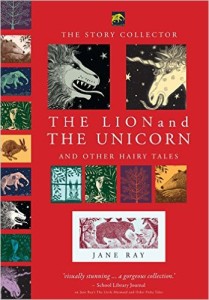 Author Jane Ray is known for beautiful picture books, enjoyed by children and adults alike. The Lion and The Unicorn teaches lessons in the way that we love to learn—through a collection of stories. In her introduction, she observes:
Author Jane Ray is known for beautiful picture books, enjoyed by children and adults alike. The Lion and The Unicorn teaches lessons in the way that we love to learn—through a collection of stories. In her introduction, she observes:
“Humankind has a paradoxical and confused relationship with animals. They delight and inspire us and yet we use and abuse them. We worship some animals and ill-treat others. We hunt them to extinction and then do our best to conserve them. We sentimentalize them and yet with stunning lack of humanity, we often drive them out of their natural habitats through the development of ours. We don’t seem to have understood that all of us, human and animal, have a place in the ecosystem, that we are all linked, that we need each other.”
The most meaningful early childhood experiences involve learning about animals. “What does the cow say? How about the pig?” Parents and grandparents read animal stories to children and marvel at how a child’s connection with animals encourages the desire to learn language.
Children love stuffed animal toys, pets and cartoon characters. If they are taught that one way to care for animals is to eat a mostly whole food, plant-based diet, they easily relate to that idea. One organization, the United States-based Animal Hero Kids, teaches children to be compassionate toward all living things, encouraging children to follow a plant-based lifestyle. Hip hop mogul Russell Simmons, at one of this organization´s events, told the audience:
“I think it’s important that kids learn compassion and that they be connected to their true spirits. Their true spirits are compassionate. The unconscious behavior of most humankind is not inspiring or uplifting when it comes to the treatment of animals, whether it’s the eating of them or the abuse of the planet. When kids learn [this lesson] early, they take it with them throughout life.”
In many modern societies, it is challenging to bring consciousness about the welfare of animals into adulthood. Neal Barnard, M.D., in his article entitled “The Psychology of Abuse”, explains that:
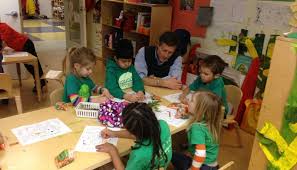 “As children, we naturally recognize our commonality with other creatures. We feel a bond with them, and incorporate them into our stories and playthings. As we attempt to leave the relics of childhood behind, however, associations with animals make us—especially the males among us—uncomfortable. To care about the suffering of animals calls up the childhood one is trying to leave behind.”
“As children, we naturally recognize our commonality with other creatures. We feel a bond with them, and incorporate them into our stories and playthings. As we attempt to leave the relics of childhood behind, however, associations with animals make us—especially the males among us—uncomfortable. To care about the suffering of animals calls up the childhood one is trying to leave behind.”
We can help children understand that the transition into adulthood does not necessitate a change in the way that animal welfare is viewed. This will help foster new generations that maintain their natural abilities to empathize with all animals and treat them kindly.
One way that modern life contributes to what author Jane Ray called the “paradoxical and confused relationship with animals” involves our not having direct contact with the animal before it arrives on the supermarket shelf as meat or organs. Before industrialized farming, humans who ate animals had intimate contact with them. Animals were eaten after the physical effort of a hunt or, if they were on a domestic farm, were cared for by the family until the time arrived when they were to be eaten in a planned, rationed manner.
Stories and myths reflect human experiences with the deaths of animals. Animal deaths were necessary to sustain or protect human life, and myths reflect the gratitude people felt toward that animal’s gift and sacrifice.
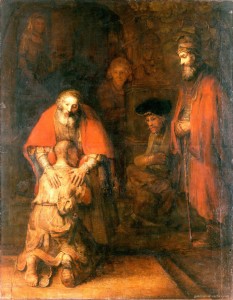 The phrase, “kill the fatted calf” evokes the biblical story of the Prodigal Son who left home with his share of his father’s fortune and returned broke and starving. His father was so overjoyed to see him that he ordered his servants to kill the calf that they had been fattening and saving for a special occasion. When the older brother heard that their father was bestowing honor upon his sibling, he became angry, accusing his father, “You never gave me even a young goat so I could celebrate with my friends.”
The phrase, “kill the fatted calf” evokes the biblical story of the Prodigal Son who left home with his share of his father’s fortune and returned broke and starving. His father was so overjoyed to see him that he ordered his servants to kill the calf that they had been fattening and saving for a special occasion. When the older brother heard that their father was bestowing honor upon his sibling, he became angry, accusing his father, “You never gave me even a young goat so I could celebrate with my friends.”
Through this story and the study of history and myth, we gain appreciation for the place eating animals had in the lives of our ancestors. Celebrations and feasts included animals when they were available. Animals were honored for their sacrifice, and all of nature was regarded as part of the web of life.
The written works of Lewis Mehl-Madrona, MD give beautiful accounts of his life as a conventionally trained physician who studied healing traditions from his Native American roots. He took an integrative approach to the practice of medicine.
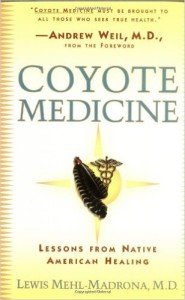 In Coyote Medicine: Lessons from Native American Healing, he tells of “a young man who has distinguished himself as a great hunter. The coyotes follow him to pick over what he leaves behind. Behind them come crows and vultures. When people are hungry, they count on this young man to find the buffalo on the great plains. He always finds the herds and gets their meat, so the people can survive another winter. He is careful when he hunts to follow the sacred traditions of praying and thanking the buffalo for the gift of their meat for the people to eat.”
In Coyote Medicine: Lessons from Native American Healing, he tells of “a young man who has distinguished himself as a great hunter. The coyotes follow him to pick over what he leaves behind. Behind them come crows and vultures. When people are hungry, they count on this young man to find the buffalo on the great plains. He always finds the herds and gets their meat, so the people can survive another winter. He is careful when he hunts to follow the sacred traditions of praying and thanking the buffalo for the gift of their meat for the people to eat.”
During the course of writing this blog post, we have realized that the act of being grateful for the animal’s gift and sacrifice is largely missing from modern society’s approach to eating the products that come from animals. In our quest to find common ground among all of the people who feel polarized about this subject, we wonder if people would find it appealing to infuse gratitude into the experience of eating the animal. We could take a moment to honor that it once was a living, breathing, feeling creature who now is going to nourish a human body. Perhaps this would fit into an individual’s practice of saying “grace” or of “mindful eating”. If this is not part of a person’s traditions, perhaps a new ritual could be embraced during the preparation and eating of the meal.
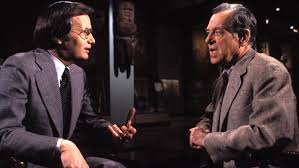 Journalist Bill Moyers interviewed mythologist Joseph Campbell in a series called The Power of Myth , while in northern California during two summers before Campbell’s death in 1987. The mythology of agrarian and hunting cultures are included in the interviews:
Journalist Bill Moyers interviewed mythologist Joseph Campbell in a series called The Power of Myth , while in northern California during two summers before Campbell’s death in 1987. The mythology of agrarian and hunting cultures are included in the interviews:
BILL MOYERS: What happened as human beings turned from the hunting of animals to the planting of seeds? What happened to the mythic imagination?
JOSEPH CAMPBELL: Well, I try to think of it this way. An animal is a total entity, and when you kill that animal, that animal is dead. But when you cut down a plant, new sprouts come out. Pruning is, you know, helpful to a plant. Also in forests where a good deal of the origination of myth is to be recognized, out of rock comes life, even in these forests here, of the beautiful redwoods. I was in a wonderful forest right near Mendocino, and there are some great, great stumps from enormous trees that were cut down some decades and decades ago. And out of them are coming these bright new little children who are part of the same plant. So there’s a sense of death as not death somehow, that death is required for new fresh life and so on. And the individual isn’t quite an individual, he is a member of a plant.
Reading these words inspired us to expand our “gratitude project” to plants as well as animals.
While researching and writing this post, we faced our own strong feelings about this subject. We found this process to be personally challenging and, at the same time, illuminating. We each learned a lot.
Elle co-founded Veg Heads at her Massachusetts high school. The club aims to raise awareness about animal agriculture and the importance of adopting a lifestyle that supports the well-being of animals, the environment and humans. Two organizations that have influenced Elle and her fellow students include PETA and Beyond Carnism.
Until Elle brought carnism to her attention, Kathryn had not focused upon it. As she learned more, she vaguely recalled having heard somewhere a jolting story about a person attending a party, enjoying a delicious dinner and later learning that the meat was that of a golden retriever.
Through Elle, Kathryn learned that this story opens Dr. Melanie Joy’s 2010 book Why We Love Dogs, Eat Pigs and Wear Cows. Joy’s view is that modern societies designate some animals as edible and others as inedible. The idea of eating the inedible ones is abhorrent, and is evidence of a set of beliefs that people in that society live by. An examination of those beliefs, especially by the many people who don’t need to eat animals for healthful nourishment, would invite adjustment in those beliefs.
In the spirit of finding common ground, we wonder if part of the adjustment in belief could include gratitude for the gift and sacrifice that the animal gave.
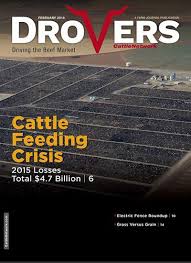 Kathryn looked at the meat and dairy industry’s perspective in searching for common ground. One article, which critiqued Joy’s work, appeared in a 2011 publication by the Drovers CattleNetwork, and defined carnism as “a belief system in which it’s considered an ethical choice to consume flesh of non-human animals. Carnists make the decision to consume meat despite being capable of meeting their nutritional needs with a meat-free diet.”
Kathryn looked at the meat and dairy industry’s perspective in searching for common ground. One article, which critiqued Joy’s work, appeared in a 2011 publication by the Drovers CattleNetwork, and defined carnism as “a belief system in which it’s considered an ethical choice to consume flesh of non-human animals. Carnists make the decision to consume meat despite being capable of meeting their nutritional needs with a meat-free diet.”
Kathryn found a small patch of common ground embedded in the broad sarcasm of that article. The author wrote: “If skipping meat for one meal a week could effect a monumental change in the environmental challenges we face, I’d do it, too.”
Maybe 4 COS4S can one day find a foothold with the cattle ranchers in encouraging a meat-free day per week. Perhaps they would also be willing to reflect on the sacrifice and gift that the animal has given, and offer gratitude.
In understanding the lack of connection that modern society has toward these sacrifices, Elle and her high school colleagues notice the dissonance between the marketing of animal foods and the experiences of the animals that provide the products that people purchase in supermarkets. For most consumers, the interaction with the animal products that are bought and eaten begins with seeing meat on display behind glass, eggs organized in tidy rows in their cartons, cheeses wrapped up in plastic and wax, and bottled milk with images of happy, grazing cows plastered on the labels. They see that their work in Veg Heads is to bring awareness of what happened before all of these products ended up for sale on grocery store shelves.
The Veg Heads note that the word “humane” means showing compassion and kindness. They ask, “In a world that supposedly celebrates benevolence and condemns causing harm, how is it that such a violent, cruel institution such as factory farming pervades our lives so effectively?” Their question evokes horrific images that many of us have seen and tried to forget, of crowded pens and cages filled with sick animals.
Many in modern society are detached from a connection to the natural world, and particularly to animals. The 4 COS4S initiative invites people to become more conscious of this, and of the fact that most people may be healthfully nourished with a diet predominantly comprised of whole, plant-based foods. In so doing, they can choose to embrace a new place in human evolution, and move away from a time in history when humans ate what could be killed, and can now favor eating what can be grown.
In the words of Joseph Campbell, when you cut down a plant, new sprouts come out. What a beautiful message for a world that wants to be healthy, compassionate, kind, humane, grateful and sustainable.
Kathryn Hayward, M.D. was a primary care internal medicine specialist at the Massachusetts General Hospital and Harvard Medical School for 20 years. She now lives in Mallorca, Spain, where she practices Integrative Health in the United States and elsewhere through Odyssey Journey: A Collaborative Approach to Wellness, and is co-founder of International Integrators, a community devoted to the global promotion of Integrative Health.
Elle Stetson-Dibble first began to explore vegetarianism in middle school after making the connection between animal welfare, the animal agriculture industry and a meat-free diet. Elle is the cofounder of Veg Heads, a student-led initiative at her high school, Concord Academy, in Massachusetts. The club aims to raise awareness about animal agriculture and the importance of adopting a lifestyle that supports the well-being of animals, the environment and humans. She is an activist dedicated to pursuing a future where people love and respect animals, the planet and the health of all.
Farm animal image source: animalhealthexpress


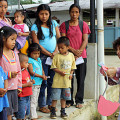
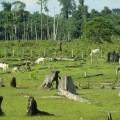

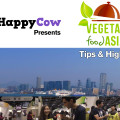
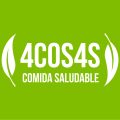
No Comments